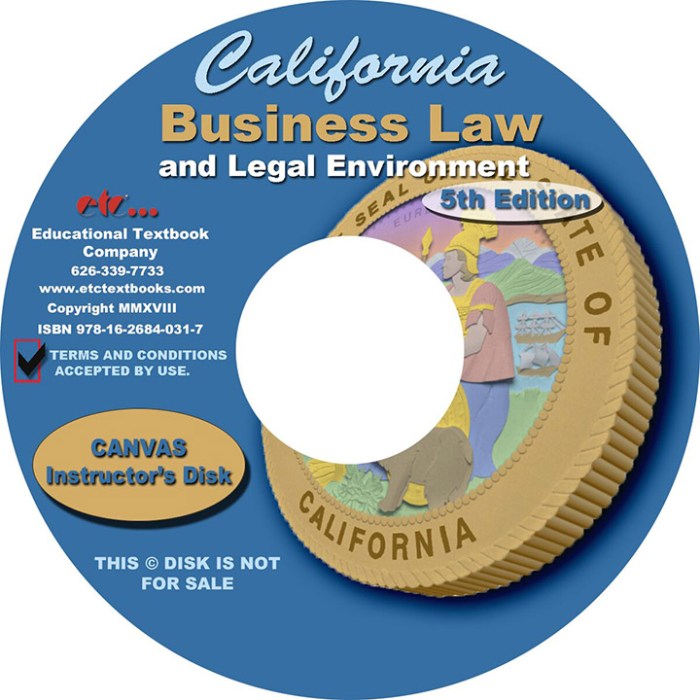California business law and legal environment – 5th edition – Delve into the intricate world of California business law and legal environment with our comprehensive guide, the fifth edition of “California Business Law and Legal Environment.” This authoritative resource unveils the complexities of operating a business within the Golden State, empowering entrepreneurs and legal professionals alike to navigate the ever-evolving legal landscape.
From the intricacies of business formation to the nuances of intellectual property protection, this guide provides a thorough examination of the legal framework that shapes business practices in California. Its user-friendly format and engaging narrative make it an indispensable tool for anyone seeking to establish or expand their business within this dynamic state.
Introduction to California Business Law

Understanding California business law is crucial for businesses operating within the state. It provides a framework for conducting business, ensuring compliance with legal requirements, and protecting the rights of businesses and individuals.
The primary sources of California business law include statutes enacted by the state legislature, regulations promulgated by state agencies, and case law established by California courts.
Formation of Business Entities

Businesses in California can choose from various entity types, each with its own advantages and disadvantages.
- Corporations:Provide limited liability to owners, offer flexibility in management and ownership, and facilitate capital raising.
- Partnerships:Simpler to form and operate than corporations, but owners have unlimited liability and share management responsibilities.
- Limited Liability Companies (LLCs):Combine features of corporations and partnerships, offering limited liability to owners while allowing for flexible management.
Choosing the right entity type depends on factors such as liability concerns, management structure, and tax implications.
Corporate Governance: California Business Law And Legal Environment – 5th Edition

California corporations must adhere to specific governance principles to ensure accountability and protect shareholder interests.
Roles and Responsibilities, California business law and legal environment – 5th edition
- Directors:Oversee the corporation’s operations, make major decisions, and ensure compliance with legal requirements.
- Officers:Manage the day-to-day operations of the corporation, including the CEO, CFO, and other executives.
Meetings and Records
Corporations must hold regular shareholder meetings and maintain accurate records, including meeting minutes, financial statements, and stock records.
Business Contracts

Contracts are legally binding agreements that govern business relationships.
Basic Principles
- Offer and Acceptance:A contract is formed when one party makes an offer and the other party accepts it.
- Consideration:Both parties must exchange something of value for the contract to be valid.
- Capacity:Parties must have the legal capacity to enter into contracts.
Types of Contracts
- Sales Contracts:Govern the sale of goods or services.
- Employment Contracts:Define the terms of employment between an employer and employee.
- Lease Agreements:Grant temporary possession of real property.
Businesses should carefully draft and negotiate contracts to protect their interests.
FAQ Overview
What are the key sources of California business law?
The key sources of California business law include statutes, regulations, and case law.
What are the different types of business entities available in California?
The different types of business entities available in California include corporations, partnerships, and limited liability companies.
What are the basic principles of contract law in California?
The basic principles of contract law in California include offer, acceptance, consideration, capacity, and legality.